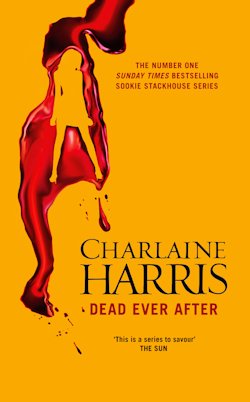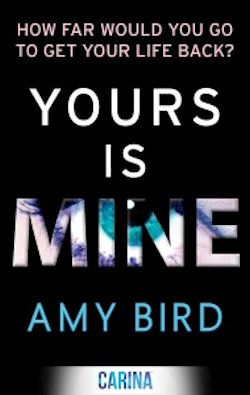Welcome back to the British Genre Fiction Focus, Tor.com’s regular round-up of book news from the United Kingdom’s thriving speculative fiction industry.
This week in the industry, news broke of a new novel by Diana Wynne Jones, who passed away in March 2011 and has been much missed ever since. I don’t know what to make of the fact that The Islands of Chaldea has been “finished” by the author’s sister Ursula, however… nor am I sure whether the digital-only imprints Molly Flat decried in a recent article for The Guardian are inclusive or exploitative. Maybe a bit of both?
Meanwhile, in a surprising move given her British editor’s earlier comments to the contrary, it looks like Charlaine Harris is going to be touring the UK after all, quite despite the, ah, adverse reaction to Dead Ever After. The British Genre Fiction Focus has all the details you’ll need if you want to attend one of her upcoming events.
A Magical Sister Act
On Monday, Harper Collins Children’s Books revealed that they’d be publishing a posthumous novel by the late, great young adult author Diana Wynne Jones, who passed away peacefully in March 2011.
It’s called The Islands of Chaldea, and it sounds like classic Diana Wynne Jones from where I’m sitting. We’re a ways off a proper synopsis—the book won’t be out for another nine months—but Fiction Publishing Director Ruth Alltimes did provide this quick pitch to The Bookseller:
“The Islands of Chaldea is [a uniquely humorous picaresque adventure] about a young girl and her bossy White Witch aunt fighting to free a king’s son held to ransom behind an enchanted forcefield, encountering a giant invisible cat and a fiery lizard along their way.”
The manuscript was unfinished at the time of Diana’s death, but in the years since, her sister, Ursula—what a wonderful, white-witchy name, no?—has been putting the finishing touches to it.
Here’s Alltimes again, touching on that topic, followed by a few words from Ursula:
“Ursula has done an amazing job of tying together the several story strands that Diana so expertly set in motion—we are very lucky to have had someone with such an intimate and meaningful connection to Diana in a position to help bring the book through the final writing stages to publication.”
Jones said: “Working on the ending of The Islands of Chaldea I think I became even closer to my sister than I was during her lifetime. I began to feel as if Diana was leaning over my shoulder. So writing the last sentence was an unbearable second parting from her: as if she had died again.”
If I’m honest, as joyous as I am about the prospect of another novel by an author still near and dear to my heart, even after all these years, I’ve always felt uncomfortable about this sort of thing; about someone coming in to “finish” something someone else has started—in this case, the sister of the dearly departed.
I take heart in the fact that Ursula Jones is a children’s author also, and presumably in a better position than anyone else to complete The Islands of Chaldea.
But I could hum and hah about this issue all morning without figuring out, finally, how I feel, so instead, let me ask: how does the news sit with you?
One Bite Begets Another
Though I’ll certainly round up signings and such from time to time, it takes something special for me to devote an entire item to one.

Now I’ve never been a Charlaine Harris fan, exactly, but I have had cause to talk about the aforementioned author in the course of the British Genre Fiction Focus before. Which is to say, in mid-May, I considered the repugnant reaction to her final Sookie Stackhouse book, Dead Ever After.
You might recall that the end of the Southern-fried vampire saga didn’t go down terribly well. Death threats were apparently levelled against Harris by the occasional idiot; other readers in their hundreds—or their thousands. If the truth be told, who knows?—resorted, rather more reasonably, to lowballing the novel on Amazon.
The upshot of all this internet outrage was a comment from the author’s UK editor, Gollancz’s Gillian Redfearn, admitting that Harris “didn’t want to go on tour for this book because she didn’t want to be face to face with that [kind of reaction.] She was prepared for it, she knew people would be unhappy.”
Eight weeks on, there seems to have been something of a turnabout on that count, because the author is set to tour the UK anyway. You can peruse her complete schedule at your leisure, but suffice it to say Charlaine Harris will signing and speaking at bookstores in London, Manchester, Liverpool, Glasgow, Edinburgh, Sheffield, Birmingham and Nottingham between the 15th and the 19th of July, as well as attending the Harrogate Crime Festival on the 21st.
Good on her, too!
That said, I don’t blame Harris for shying away from her angry fans immediately after the release of Dead Ever After, do you?
And now for another item I don’t want to come down one way or the other on!
Digital Danger

Last Friday, Molly Flat published an article in The Guardian that I don’t think attracted nearly enough notice. For one thing, it’s brilliantly written—emblematic of the sort of unapologetically opinionated reporting I wish we saw more of—and for another, Flat outlines a fascinating argument.
Here’s how it begins:
Poor old big-name publishers. Stick to your guns by insisting on the value of your traditional, print-centric gatekeeping, and you’ll be shunted straight to the top of the endangered species list. Pander to the plebs by putting a fancy cover on fan fiction, and you’ll be decried as an opportunist whore who has swapped literary values for trending hashtags. It’s enough to make you run screaming out of your Bloomsbury redbrick and set up in a cheap little Hackney warehouse with a bunch of fixie-riding digital natives who can knock out a Dickens alternate reality game before breakfast.
For those brave soldiers who have remained in the barracks of trade publishing (the smell of fear and ink catching in their nostril hairs), digital only-imprints must seem like a promising hybrid. First, take a brand that both readers and authors trust. Next, put said brand in a genre-specific digital cage, with a ringmaster offering some editorial and production support. Kick off the show with a few established writers and, finally, allow the unsigned, self-published or unpalatably niche pen-monkeys in to play.
In case you aren’t aware of the trend that’s been sweeping the industry recently, Flat goes on to outline a handful of examples:
Random House has been one of the earliest and most comprehensive adopters, with Hydra (sci-fi and fantasy), Alibi (mysteries and thrillers), Flirt (new adult, or soft porn) and Loveswept (romance and women’s fiction). Harlequin UK has Carina (multiple genres) while Little, Brown is breaking with convention to focus on literary and non-fiction with Blackfriars. This month alone, Penguin, Kensington, F+W Media, HarperCollins and Bloomsbury have announced new or expanded digital imprints. Democracy, speed and low overheads, plus author support and brand heft: what’s not to love?
Well, the contracts, apparently, “which have been derided for offering no advance, deducting costs such as editing and design, and retaining rights for the term of copyright.”

Then again, the digital-only imprints have their defenders, among them London author Amy Bird, whose first novel will be published next month:
She considers her contract more than fair—there is no deduction or charge for editing, marketing or design, and there are provisions for rights to revert to her after seven years if certain conditions are met. ”True, there is no megabuck advance,“ she admits. ”But I don’t need an advance: I work part-time as a solicitor. And I am being offered 50% rates on royalties, which seems fair. And most importantly, nobody is asking me to get my cheque-book out.”
Which does seem like a step up from the more scandalous requirements of various vanity publishing companies… but why is that the comparison?
If all this is a way for bigger imprints to get in on the vanity press action, then so be it, I suppose. At least they stand to legitimise an especially mercenary practice in the process, making it much less likely that aspiring authors are simply going to be ripped off.
Thoughts?
And that’s it for this edition of British Genre Fiction Focus. As ever, please do continue the conversation in the comments section, and remember to check in again next Wednesday for another bountiful amount of book news from bonnie Blighty.
Quick word to the wise before I say goodbye: if I were you, I wouldn’t be in the slightest surprised to see something supplementary—something extra-special, even—from the fold of the British Genre Fiction Focus beforehand.
Goodbye for the very moment, though!
Niall Alexander is an erstwhile English teacher who reads and writes about all things weird and wonderful for The Speculative Scotsman, Strange Horizons, and Tor.com, where he contributes a weekly column concerned with news and new releases in the UK called the British Genre Fiction Focus, and co-curates the Short Fiction Spotlight. On occasion he’s been seen to tweet, twoo.









